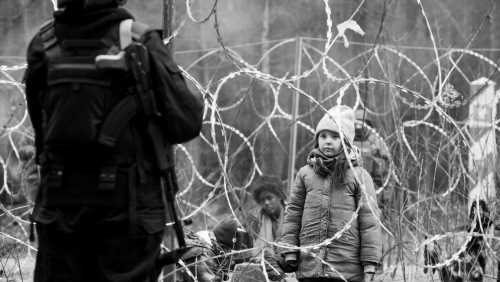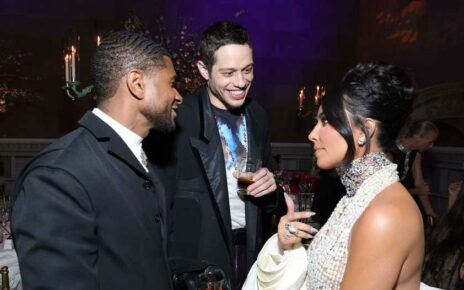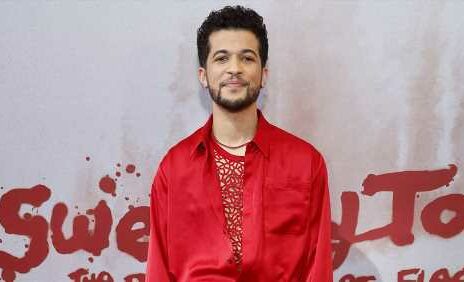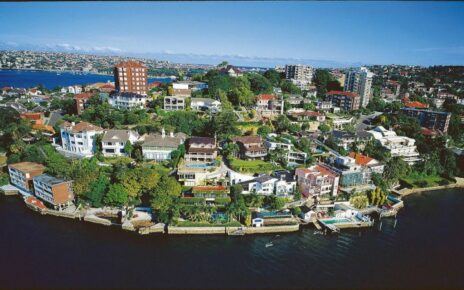Three decades ago, just a few years after the fall of the Berlin Wall ushered in a new era of hope and promise in Europe, Polish filmmaker Agnieszka Holland made the historical drama “Europa, Europa,” which follows the harrowing ordeal of a Jewish teenager who goes to impossible lengths to survive the Holocaust. The title, says Holland, was meant to express “the duality of the European tradition: Europe of our aspirations, the cradle of culture and civilization, the rule of law and democracy, human rights, equality and fraternity, but on the other hand, Europe as the cradle of the worst crimes against humanity, selfishness and hatred.”
Throughout her career, the three-time Academy Award nominee has found inspiration in “the great and tragic subjects of the 20th century,” powered by the conviction that “history is relevant, that what happened is relevant,” Holland tells Variety. Her latest film, “Green Border,” which has its North American premiere at the Toronto Film Festival after bowing in competition at Venice, shows a director in the thrall of history as it unfolds in real time. It focuses on the humanitarian crisis taking place along Poland’s border with Belarus, whose pro-Kremlin strongman Aleksandr Lukashenko has attempted to flood the E.U. with refugees.
For Holland, who fled communist Poland for France in 1981 before the imposition of martial law in the Central European country, there is a sense that history is coming full circle. “The totalitarian danger [of World War II] didn’t end and is still present and can wake up at any moment,” she says. “I think that we feel in Europe quite strongly, and those in Ukraine feel even stronger, that that moment is coming — that it came.”
Spurred by the Ukraine war and its subsequent refugee crisis, as Russian president Vladimir Putin rattles sabers on Europe’s eastern borders with the threat of nuclear war, Holland is one of several Polish filmmakers whose latest films are driven by a sense of profound moral urgency — by the conviction that “we are witnessing a very unique moment in history,” according to documentary filmmaker Maciek Hamela (“In the Rearview”).
Other high-profile Polish titles to hit the festival circuit this year, including Jonathan Glazer’s Auschwitz-set drama “The Zone of Interest,” which won the Grand Prix at Cannes, and Louise Archambault’s World War II-era biopic “Irena’s Vow,” are likewise reflections on dark chapters in Polish and European history from filmmakers who treat their subjects with an unflinching gaze. Both films — Polish minority co-productions — are playing this week at Toronto.
Hamela, who’s at the Canadian fest for the North American premiere of a film that bowed in Cannes’ ACID sidebar, was developing a documentary set along the Poland-Belarus border when Russian forces launched their full-scale invasion of Ukraine last February. It was, for many Poles, a haunting echo of “the stories of our grandparents,” the director says, recalling how the Central European nation was invaded by Bolshevik Russia in 1919 and, two decades later, by both Nazi Germany and the Soviet Union in the span of 16 days. “It wasn’t just me; it was tens of thousands of people who felt this was a war that concerns us as well,” he says. “You can’t be oblivious to history.”

In the days after the invasion, Hamela rented a van to help transport refugees — first, from the Ukraine border to the safety of Polish cities, and then across the war-torn country itself. Before long, he decided to pick up his camera to document the plight of some of the estimated 8 million Ukrainians who would eventually flee the country, recording tales of terror and loss, hope and uncertainty, over the course of six months and tens of thousands of miles. “They had this urgency to speak. They wanted to deliver themselves,” Hamela says. With the fate of Ukraine uncertain, the filmmaker was driven by the fear that “these stories would never be told.”
Holland likewise felt compelled “to give the voice to those who are voiceless,” focusing on the countless primarily African and Middle Eastern refugees whose efforts to find safe haven in the E.U. have instead left them clinging precariously to its margins. The screenplay for “Green Border,” which the director co-wrote with Gabriela Łazarkiewicz-Sieczko and Maciej Pisuk, is based on hundreds of hours of interviews with refugees, border guards, borderland residents, activists and experts on migration.
Holland insists that the ongoing refugee crisis that reached its peak in 2015, in what was said to be the largest wave of human migration since World War II, will be part of the new normal in Europe, as millions of people whose lives have been upended by war, famine, drought and climate catastrophe flee their countries in search of a better life in the wealthier countries of the global north. “We are not at all prepared for that intellectually, culturally, psychologically, politically,” she says. “We have to face the situation at some point. And if not, we will be changing into the monsters we don’t want to be.”

The war in Ukraine is approaching its grim, 18-month milestone with no resolution to the conflict in sight. The humanitarian and economic crisis it’s spurred has compounded the aftershocks of the coronavirus pandemic, particularly in neighboring countries like Poland. Meanwhile, Europe is reeling from the hottest summer on record, with wildfires leaving a trail of devastation across large swaths of the continent. Few can remember a time when the future looked so uncertain. Fear, says Polish director Agnieszka Smoczyńska (“The Silent Twins”), is “the defining emotion of our world today.”
Smoczyńska is currently developing her next feature, “Hot Spot,” a genre-bending mash-up of horror, sci-fi and “anti-crime” set in an unnamed European country. It follows a disillusioned private eye called to investigate a murder at a refugee camp, who becomes increasingly unstable as he confronts a “cyber witch” attempting to take control of his life. The film, which Smoczyńska is developing with screenwriter and long-time collaborator Robert Bolesto (“The Lure”), takes place in an alternate near-future where climate change has pushed the environment to the brink of collapse, forcing millions to flee their homes.
Smoczyńska says the film is inspired by the growing unease felt by many after years of COVID-induced isolation, an anxious period that has “made us terrified” of both the world around us and each other. Though born from this particularly bleak moment in human history, however, “Hot Spot” is a story of “metamorphosis” and rebirth, she says, and a meditation on “how fear can be changed into love.” The director poses probing questions: “Who are we today? What defines us? Where are we headed as a species, as human beings? What are we really afraid of? And what can lead to our liberation?”
One of contemporary world cinema’s more innovative and provocative filmmakers, Smoczyńska is unlikely to offer easy answers to those questions. Nor is she readily willing to resign herself to defeat. “I’m trying to grasp these still unfolding phenomena,” she admits, adding: “If love exists, there’s always hope.”
Read More About:
Source: Read Full Article



